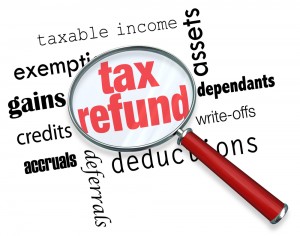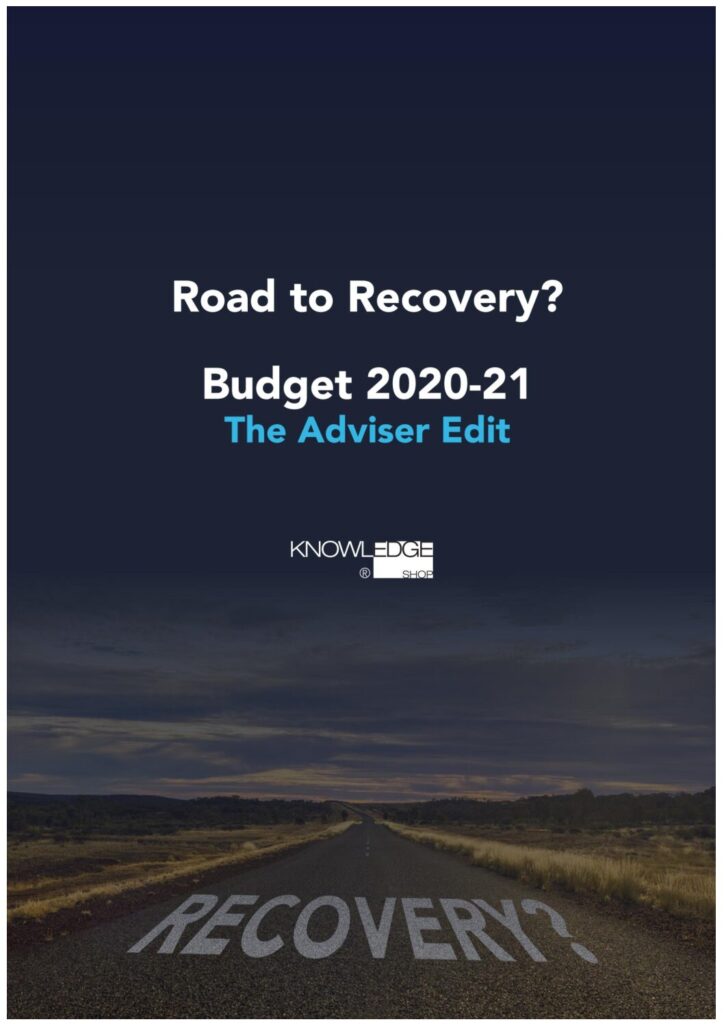What are the tax and investment considerations for a Granny Flat above versus a Tiny Home below? Income Tax Return Reporting - Income Streaming Tiny Homes Tiny home ownership does not have to follow the ownership interest of the underlying property ownership. For...
2020 Federal Budget – Key Take-aways
Individuals

Personal income tax cuts
| Date of effect | 1 July 2020 |
| Tax thresholds | |||
| Tax rate | Current | From 1 July 2020 | From 1 July 2024 |
| 0% | $0 – $18,200 | $0 – $18,200 | $0 – $18,200 |
| 19% | $18,201 – $37,000 | $18,201 – $45,000 | $18,201 – $45,000 |
| 30% | $45,001 – $200,000 | ||
| 32.5% | $37,001 – $90,000 | $45,001 – $120,000 | |
| 37% | $90,001 – $180,000 | $120,001 – $180,000 | – |
| 45% | >$180,000 | >$180,000 | >$200,000 |
| LITO | Up to $445 | Up to $700 | Up to $700 |
Bringing forward the personal income tax plan will:
- Increase the top threshold of the 19% tax bracket to $45,000 (from $37,000)
- Increase the top threshold of the 32.5% tax bracket to $120,000 (from $90,000)
- Increase the low income tax offset from $445 to $700
In addition, the LMITO (low and middle income tax offset), which provides a reduction in tax of up to
$1,080 for individuals with a taxable income of up to $126,000, will be retained for 2020-21.

The tax cuts will be backdated to the 1st July 2020, going forward tax withheld will reflect the tax cuts, the tax saving from the 1st July 2020 will be refunded in your 2021 Tax Return.
See link to calculate your tax savings – just enter your taxable income
$250 economic support payments

| Date of effect | November 2020 and early 2021 |
Two additional economic support payments of $250 each will be made to eligible recipients of the following payments and health care card holders:
• Age Pension
• Disability Support Pension
• Carer Payment
• Family Tax Benefit, including Double Orphan Pension (not in receipt of a primary income support payment)
• Carer Allowance (not in receipt of a primary income support payment)
• Pensioner Concession Card (PCC) holders (not in receipt of a primary income support payment)
• Commonwealth Seniors Health Card holders
• Eligible Veterans’ Affairs payment recipients and concession card holders.
The payments are exempt from taxation and will not count as income support for the purposes of any income support payment.
Capital gains tax removed from ‘granny flats’

| Date of effect | 1 July 2021 subject to the passage of the legislation |
At present, if a client enters into a formal granny flat arrangement with a relative, such as an elderly parent, there is a risk of capital gains tax (CGT) applying.
For example, where the arrangement involves the granting of a right to live with the client in exchange for payment, the granting of that right will trigger CGT implications. Further, the main residence exemption will not apply to exempt that gain, nor will the 50% CGT discount apply to reduce it. In addition, the arrangement may affect the client’s ability to claim the main residence exemption when the home is eventually sold.
Announced pre Budget, this measure provides a targeted CGT exemption for granny flats under certain conditions. Under the arrangement, CGT will not apply to the creation, variation or termination of a formal written granny flat arrangement providing accommodation for older Australians or people with disabilities.
The exemption only applies to family arrangements or other personal ties and will not apply to commercial rental arrangements.
10,000 additional places in First Home Loan Deposit Scheme

| Date of effect | 6 October 2020 |
Announced pre Budget, from 6 October 2020 until 30 June 2021, an additional 10,000 places will be available for first home buyers under the First Home Loan Deposit Scheme to support the purchase of a new home or a newly built home. The scheme enables first home buyers to purchase a home with a deposit of as little as 5% without mortgage insurance. There are currently 27 participating lenders across Australia offering places under the First Home Loan Deposit Scheme.
Your Superannuation

| Date of effect From 1 July 2021 | Superannuation accounts ‘stapled’ to an individual |
This reform will ensure individuals continue to use their existing superannuation fund when they change jobs. The fund will be “stapled” to the individual to prevent the duplication of superannuation fund accounts when changing employers.
From 1 July 2021:
• If an employee does not nominate an account at the time they start a new job, employers will pay their superannuation contributions to their existing fund.
• Employers will obtain information about the employee’s existing superannuation fund from the ATO.
• The employer will do this by logging onto ATO online services and entering the employee’s details. Once an account has been selected, the employer will pay superannuation contributions into the employee’s account.
• If an employee does not have an existing superannuation account and does not make a decision regarding a fund, the employer will pay the employee’s superannuation into their nominated default superannuation fund.
The Government expects that future enhancements will enable payroll software developers to build systems to simplify the process of selecting a superannuation product for both employees and employers through automated provision of information to employers
Business & Employers
$200 weekly credit for businesses to take on young workers

JobMaker Hiring Credit
| Date of effect From 7 October 2020 for 12 months |
The JobMaker Hiring Credit will be available to eligible employers over 12 months from 7 October 2020 for each additional new job they create for an eligible employee.
Eligible employers will receive:
• $200 per week if they hire an eligible employee aged 16 to 29 years or
• $100 per week if they hire an eligible employee aged 30 to 35 years.
The JobMaker Hiring Credit will be paid quarterly in arrears. It will be available for up to 12 months from
the date of employment of the eligible employee with a maximum amount of $10,400 per additional new position created.
Employers will need to demonstrate that the new employee will increase overall employee headcount and payroll.
To be eligible, the employee will need to have worked for a minimum of 20 hours per week, averaged over a quarter, and received the JobSeeker Payment, Youth Allowance (other) or Parenting Payment for at least one month out of the three months prior to when they are hired
Businesses big and small can now write off any capital purchases, at any cost
Immediate deductions for investment in capital assets

| Date of effect Acquisition of eligible capital assets from 7:30 pm AEDT on 6 October 2020 and first used or installed by 30 June 2022 |
The Government is really keen for business to invest. This measure enables businesses with an aggregated turnover of less than $5 billion to fully expense the cost of new depreciable assets and the cost of improvements to existing eligible assets in the first year of use. This means that an asset’s cost will be fully deductible upfront rather than being claimed over the asset’s life.
While many businesses were already eligible for an instant asset write-off for asset purchases of up to $150,000, this measure does not cap the asset’s cost, and eligibility for the higher instant asset write-off has been significantly broadened and extended (the existing $150,000 instant asset write-off applies to businesses with turnover less than $500 million and will not apply to purchases after 31 December 2020).
Second-hand assets
For businesses with an aggregated turnover under $50 million, full expensing also applies to second-hand assets.
Tax loss carry-back for businesses

Ability for companies to carry-back losses
| Date of effect Losses from 2019-20, 2020-21 or 2021-22 income years |
Companies with an aggregated turnover of less than $5 billion will be able to carry back losses from the 2019-20, 2020-21 and 2021-22 income years to offset previously taxed profits in the 2018-19, 2019-20 and 2020-21 income years.
Under this measure tax losses can be applied against taxed profits in a previous year, generating a refundable tax offset in the year in which the loss is made. The amount carried back can be no more than the earlier taxed profits, limiting the refund by the company’s tax liabilities in the profit years. Further, the carry back cannot generate a franking account deficit meaning that the refund is further limited by the company’s franking account balance.
The tax refund will be available on the election by eligible businesses when they lodge their 2020-21 and 2021-22 tax returns.

Currently, companies are required to carry losses forward to offset profits in future years. Under the proposed amendments, companies that do not elect to carry back losses can still carry losses forward as normal.
This measure will interact with the Government’s announcement to allow full expensing of investments in capital assets. The new investment will generate significant tax losses in some cases which can then be carried back to generate cash refunds for eligible companies.
Note that loss carry-back rules were introduced some years ago by the Gillard government. The rules were repealed and were only operational in the 2012-13 year.
100,000 new apprenticeships

| Date of effect 5 October 2020 |
Announced pre Budget, from 5 October 2020 a business (or Group Training Organisation) that takes on a new Australian apprentice will be eligible for a 50% wage subsidy, regardless of geographic location, occupation, industry or business size. The scheme will be available until the 100,000 cap has been reached.
Under the subsidy, employers will be eligible for up to 50% of the wages of a new or recommencing apprentice or trainee for the period up to 30 September 2021. The maximum subsidy is $7,000 per quarter.
The subsidy is paid in arrears and is available for wages paid from 5 October 2020 to 30 September 2021.
Eligible businesses are those that:
• Engage an Australian Apprentice between 5 October 2020 and 30 September 2021, and • The Australian Apprentice or trainee is undertaking a Certificate II or higher qualification, and has a training contract that is formally approved by the state training authority.


If you would like any advice, please contact our office, or book a chat online




